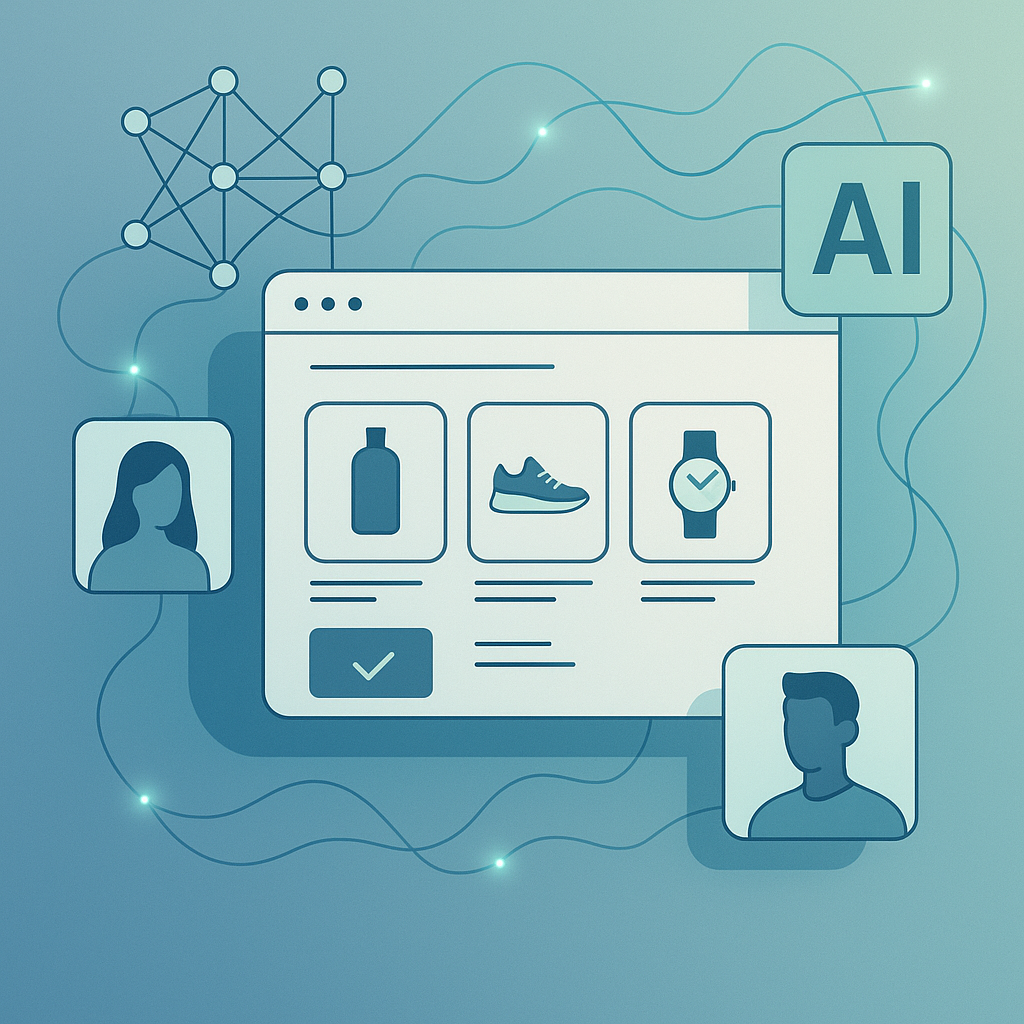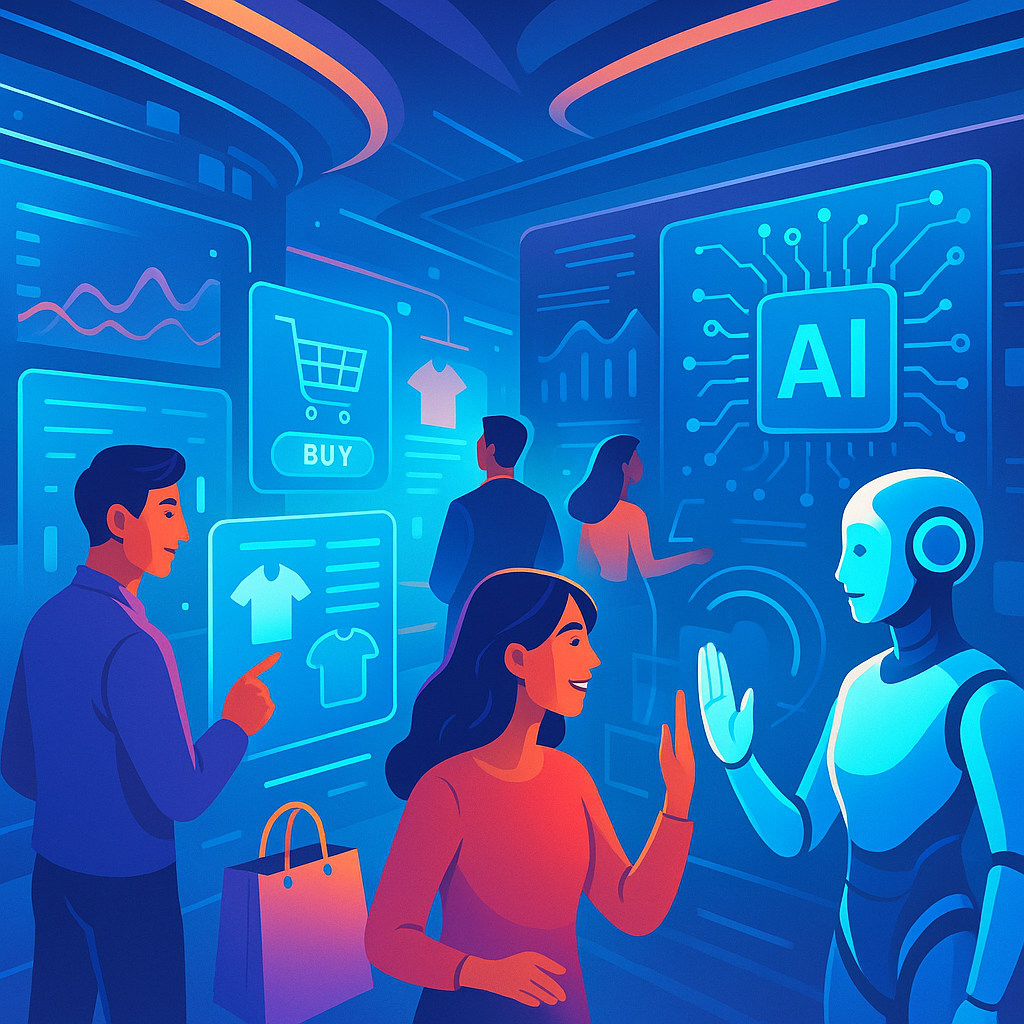
How Niche E-Commerce Companies Use AI to Revolutionize Customer Experience in 2025
The Rise of AI in Niche E-Commerce
Artificial intelligence has become the linchpin for niche e-commerce companies aiming to create unique, engaging, and highly personalized customer experiences. As mainstream players often focus on scale, niche companies leverage AI to differentiate themselves by catering intimately to their specialized audiences. In 2025, this strategic integration moves beyond simple recommendation systems, embracing multifaceted AI capabilities that revolutionize how these businesses interact with customers.
Hyper-Personalization: Crafting Tailored Journeys
Unlike generalized platforms, niche e-commerce companies thrive by understanding the nuanced preferences of their customers in specific categories—be it eco-friendly fashion, artisanal foods, or bespoke tech gadgets. AI-driven algorithms now process vast behavioral and contextual data points to deliver hyper-personalized shopping journeys:
Dynamic Content Streams: AI curates product displays, marketing emails, and landing pages that morph in real-time to reflect user tastes, past purchases, and even current trends within niche communities.
Sentiment Analysis: By analyzing social media interactions and customer reviews, AI predicts evolving preferences and incorporates emotional intelligence, creating empathy-driven product suggestions and outreach.
Predictive Inventory: Machine learning forecasts demand for niche products with remarkable accuracy, ensuring fresh stock aligns neatly with personalized recommendations, reducing the risk of overstock or shortages.
AI-Powered Virtual Assistants and Chatbots Enhancing Engagement
With consumers expecting swift responses and human-like interactions, many niche e-commerce companies deploy AI-enhanced chatbots and virtual assistants tailored for their verticals:
Specialist Knowledge Bases: These AI agents are trained on highly specific product details and lifestyle knowledge that resonates with niche buyers, delivering precise guidance beyond generic FAQs.
Contextual Conversations: Advanced natural language processing enables these chatbots to understand complex queries and offer personalized tips, styling advice, or troubleshooting in real-time.
Seamless Multi-Channel Support: Integrated AI chat systems provide consistent and context-aware support across websites, social media platforms, and messaging apps, fostering continuous customer engagement.
Immersive AI Technologies: Augmenting the Shopping Experience
In 2025, immersive AI-driven technologies are no longer just futuristic ideas but practical tools for niche e-commerce companies, helping customers visualize and experience products before buying:
Augmented Reality (AR) Fittings: From trying on handcrafted jewelry virtually to seeing how handcrafted furniture fits in one’s living space, AI-enhanced AR tools reduce purchase hesitation.
3D Product Customizers: AI-powered customization platforms enable customers to tweak product attributes—colors, materials, features—while previewing instant visual feedback within the niche's unique parameters.
Voice Shopping Assistants: Voice-enabled AI systems trained in niche product vocabularies facilitate effortless reordering or discovery via natural conversations, tapping into the growing voice commerce trend.
Data-Driven Community Building and Trust Formation
Because niche e-commerce companies often rely on tight-knit communities to scale, AI plays an instrumental role in nurturing trust and belonging:
Influence Mapping: AI analyzes social networks to identify authentic micro-influencers aligned with niche values, allowing companies to foster organic word-of-mouth growth.
Feedback Loops: AI continuously monitors customer reviews, sentiment, and product usage patterns, enabling businesses to iterate rapidly and transparently on product offerings.
Fraud Detection and Security: Leveraging AI to spot unusual transaction patterns keeps niche marketplaces safe, reinforcing user confidence without intrusive security checks.
Operational Automation Tailored to Specialized Needs
Behind the scenes, AI streamlines operations tailored to the complexities of niche product lines:
Smart Logistics: AI optimizes shipping routes for specialty items, balancing delivery speed with fragility or unique handling requirements.
Automated Pricing Strategies: Dynamic pricing algorithms consider competitor moves, customer demand fluctuations, and rarity, ensuring profitability without alienating loyal customers.
Supplier Coordination: AI systems facilitate real-time communication and quality control with boutique suppliers, preserving the authenticity and uniqueness that niche buyers cherish.
Innovative Examples Illuminating the Landscape
Case Study: The Sustainable Swimwear Company
A niche player focusing on eco-conscious swimwear integrates AI to analyze consumer preferences for sustainable materials and fit. Its AI chatbot, infused with fabric science knowledge, guides buyers through eco-impact considerations while AR tools enable virtual try-ons aligned with different body types, improving purchase confidence and reducing returns by 30%.
Case Study: Artisan Coffee Marketplace
This platform uses AI-driven flavor profiling and purchase history to recommend rare coffee varietals aligned with individual taste profiles. Real-time AI moderates live community forums, fostering a spirited but respectful coffee culture that strengthens brand loyalty.
Looking Beyond 2025: The AI-Niche E-Commerce Synergy
As AI evolves, its symbiosis with niche e-commerce will deepen. Emerging trends such as AI-generated product design, fully autonomous concierge services, and cross-platform AI ecosystems promise to redefine personalization boundaries further. Niche companies prepared to innovate and experiment stand to redefine customer experience landscapes, turning specialization into a powerhouse of digital intimacy and operational excellence.
Conclusion
In 2025, niche e-commerce companies are not merely adapting AI technologies; they are pioneering tailored applications that revolutionize customer interaction and operational agility. Through hyper-personalization, immersive experiences, community-building AI models, and behind-the-scenes automation, these specialized businesses craft unique journeys that elevate customer experience to unprecedented levels. This transformative AI adoption reinforces the significant role niche players hold in shaping the future of e-commerce.






